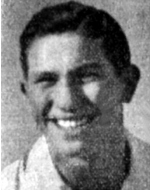Matityahu, son of Tony and Georg, was born on February 20, 1928, in Berlin, the capital of Germany. He attended the Jewish school in the city. The large Jewish community in Berlin ran the life of religion and education, welfare and welfare, and maintained a rich and diverse cultural life. The Jews were prominent in the publishing of newspapers and books, published in medicine and excelled as entrepreneurs in the industry. Anti-Semitism in Germany began to emerge in the early 1930s, and intensified with the strengthening of the Nazis. Many Jews decided to emigrate, while Zionist activity increased. The status of the Jewish community in Berlin was abolished in March 1938. In November the Kristallnacht pogroms took place, during which the synagogues were set ablaze, public institutions were attacked, shops were burglarized and robbed. Since then, Jewish blood has been allowed everywhere. At the outbreak of World War II, in September 1939, there were about 75,000 Jews in Berlin – about half of them in the early 1930s. The Jews were severely restricted. Among other things, they were forced to wear the yellow star and were required to evacuate their apartments as a cover for their deportation eastward. At the end of February 1943, when the extermination of the Jews began in all German cities, many Berlin Jews were sent in freight cars to Auschwitz, where they were sent to death or forced labor. By the end of the war, about a third of Germany’s half-million Jews perished, many of them Berliners. Matityahu and his parents were deported to Auschwitz. There, as soon as they arrived, the mother was murdered. The son and father were sent to work, and after a while the father died. Only Matityahu the Strong survived the hard work and got to the day of liberation. After the war he went to Belgium. Where he heard lectures about Zionism, joined Mapam and prepared for immigration to Israel, and in 1946 he boarded the illegal immigrant ship “Biria.” The ship was purchased by the Mossad Le’Aliyah Bet of the Haganah and set out on board with 999 illegal immigrants, half of them from Poland And most of them were members of youth movements, one group of haredim from Agudath Israel and a large group of partisans from the Vilna area, and after the hardships the ship reached the port of Haifa on July 1, 1946, Black Sabbath “was a detention camp occupied by many detainees from the Yishuv, and the immigrants were held there Who was connected to the breakwater in Haifa and was later transferred to the detention camp at Atlit About a month later, Matityahu was held in the detention camp in Atlit until he received his aliyah permit from the Jewish Agency, and after leaving the kibbutz he moved to Kibbutz Heftziba in the Jezreel Valley, After his arrival in Tel Aviv, Matityahu joined the Haganah, and at the outbreak of the War of Independence he was one of the defenders of the areas of Abu Kabir and Manshiya . He was later joined to Battalion 54 in the Givati Brigade, Battalion 5. Matityahu was ordained as a medic, and took part in the battalion’s battles in the Jerusalem area. With the Egyptian invasion after the declaration of independence, the battalion was transferred to the area of Isdud (Ashdod). On the night of June 2, 1948, during the “Philistine” operation, Givati forces attacked the Egyptian alignment near the bridge of the coastal road (now the Ad Halom bridge). The assault was halted by heavy enemy fire and the forces were forced to retreat. The attack failed, but forced the Egyptians to prepare for the attack and halted their advance northward toward Tel Aviv. In this battle, on the 3rd of Iyar 5708 (June 3, 1948), more than twenty fighters fell, including Matityahu. When he passed among the injured, he was hit by a bullet in the lungs, and then another three enemy bullets hit him and killed him. Matityahu was twenty years old when he died. He was laid to rest in the military cemeteryIn the village of Warburg. This hero is a “last scion”. The survivors of the Holocaust are survivors of the Holocaust who survived the last remnant of their nuclear family (parents, brothers, sisters, sons and daughters) who experienced the Holocaust in the ghettos and / or concentration camps and / or in hiding and hiding in territories occupied by the Nazis and / Or in combat alongside members of the underground movements or partisans in the Nazi-occupied territories who immigrated to Israel during or after World War II, wore uniforms and fell in the Israeli army.
